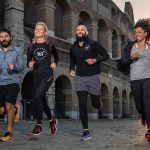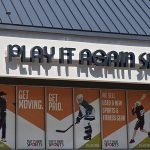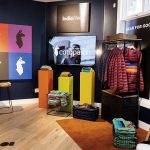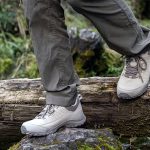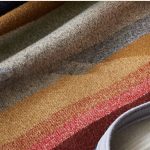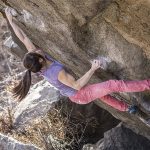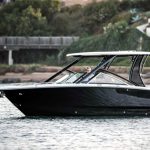In the second quarter, the hardgoods market was, not surprisingly, dominated by the golf companies, whose strong results masked relatively poor performances from the snow sports and fitness vendors. Overall, the hardgoods market saw second quarter sales increase in the mid-singles with a 200 basis point jump in gross margins driving a low-singles increase in net income. Return on sales, however, decreased 50 basis points as the bottom line was unable to keep up with the growth seen on the top.
Taking a closer look at the 6.7% overall sales gains for hardgoods vendors shows the golf market slightly outpacing the overall with sales up 6.8%. Sales amongst snow sports vendors increased 2.8% for the quarter, while fitness sales were up 1.2%. Unfortunately, these slight sales gains for snow sports and fitness vendors sit atop worrying trends further down the P&L as the snow guys saw their quarterly net loss widen 7.7%, while the fitness companies collectively posted a 40.8% decrease in net income. The snow sports net loss increase was largely caused by unseasonably warm weather and no snow throughout all of Europe and most of both coasts in the U.S. The three major snow sports companies all reported expanding losses for the seasonally slow Q2. In addition, most of these companies are cutting back their production for the year to reflect the realities of this shrinking market.
The fitness net income decrease came from both Cybex and Nautilus. Nautiluss 33.6% decrease in net income was off a small base making the percentage decrease seem large. Cybex, however, had a 92% decrease as a result of a $14.4 million benefit due to a reduction in the company's tax valuation reserve during the year-ago quarter. Without the benefit, the companys net income would have decreased similar to Nautilus, but the overall hardgoods market net income would have increased 7.4% for the quarter. Without the effects of Cybex benefit, return on sales for the hardgoods market as a whole would have been flat at 8.6% of sales, instead of down 50 basis points.
During the quarter, double-digit sales gains at Acushnet, Adams Golf and Callaway combined to hide a 9.5% decrease in sales for TaylorMade-adidas Golf and a 12.9% decrease at Wilson Golf. Callaways initiatives to drive bottom line growth carried the overall golf market, more than offsetting a 38.1% decrease at Aldila and an 18.2% decrease at TMaG. Return on sales for golf vendors improved 40 basis points for the quarter to 12.7% of sales.
That inventories grew at just over twice the rate of sales in the quarter looks troubling, especially for the fitness companies. Both Cybex and Nautilus had strong double-digit increases in inventory. The golf market, however, saw inventory slightly decrease for the quarter, led by Callaway, as a result of a decrease in SKU count at Top Flite and a general attempt to lower inventory levels.
Through new product and technology introductions as well as a dry, hot summer, the golf market posted strong results in the second quarter. However, though it is typically a slow period for snow sports vendors, the slow sales and widened loss signal worrying trends heading into the next winter. As always, those companies will be at the mercy of mother nature next season, but will also face questions of whether retailers have any open to buy or not after last seasons more or less complete lack of snow. The fitness manufacturers, meanwhile, face a sluggish market as consumers look to be slowing on the purchase of higher ticket items and durable goods. For its part, Nautilus hopes to drive sales through new product and brand introductions, but only the consumer can decide if that is enough to jumpstart fitness sales.

